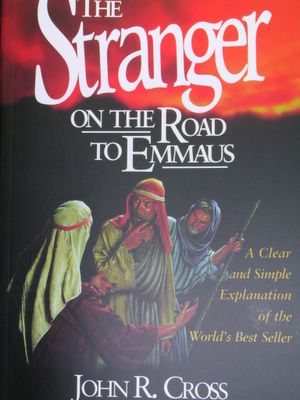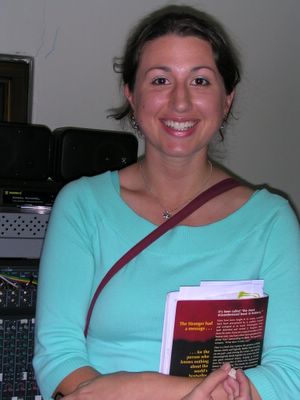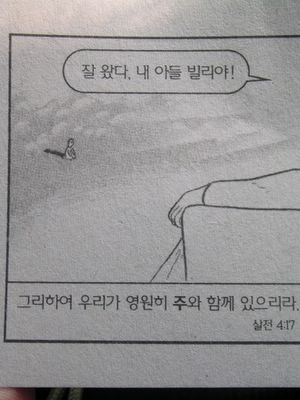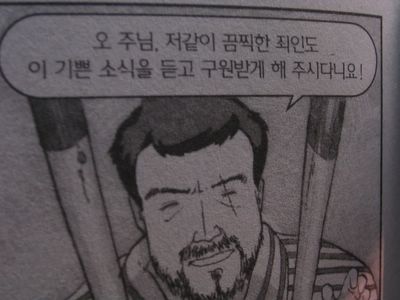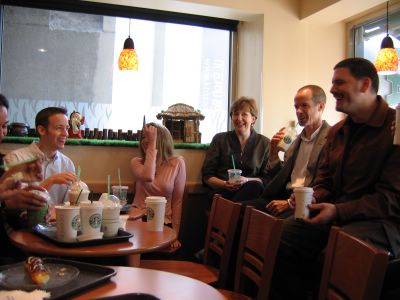"The Stranger on the Road to Emmaus"
"Now about the same day two of them were going to a village called Emmaus, about seven miles from Jerusalem. They were talking with each other about everything that had happened. As they talked and discussed these things with each other, Jesus himself came up and walked along with them; but they were kept from recognizing him. He asked them, "What are you discussing together as you walk along?" They stood still, their faces downcast. One of them, named Cleopas, asked him, "Are you only a visitor to Jerusalem and do not know the things that have happened there in these days?" "What things?" he asked. "About Jesus of Nazareth," they replied. "He was a prophet, powerful in word and deed before God and all the people. The chief priests and our rulers handed him over to be sentenced to death, and they crucified him; but we had hoped that he was the one who was going to redeem Israel. And what is more, it is the third day since all this took place. In addition, some of our women amazed us. They went to the tomb early this morning but didn't find his body. They came and told us that they had seen a vision of angels, who said he was alive. Then some of our companions went to the tomb and found it just as the women had said, but him they did not see. " He said to them, "How foolish you are, and how slow of heart to believe all that the prophets have spoken! Did not the Christ have to suffer these things and then enter his glory?" And beginning with Moses and all the Prophets, he explained to them what was said in all the Scriptures concerning himself. As they approached the vilage to which they were going, Jesus acted as if he were going farther. But they urged him strongly, "Stay with us, for it is nearly evening; the day is almost over." So he went in to stay with them. When he was at the table with them, he took bread, gave thanks, broke it and began to give it to them. Then their eyes were opened and they recognized him, and he disappeared from their sight. They asked each other, "Were not our hearts burning within us while he talked with us on the road and opened the Scripture to us?" (Luke 24:13-32)
There are several Bible study groups which meet at 9:45am every Sunday in SIBC. One is for ladies, one for men, one is mixed (men&women;single or married), one for singles and others for different child age groups. Well, there is a new group that has been meeting in the sanctuary for the past few weeks studying a fantastic book titled "The Stranger on the Road to Emmaus", written by John R. Cross. I REALLY enjoy our single bible study so I have been reading the book on my own. This is a GREAT book and I highly recommend it to anyone; Christian or not.
From the PREFACE:
"It's not easy to write an objective book about the Bible. By its very nature, the Bible demands a response. Unfortunately, people's responses have been determined under less than ideal settings.
Many of us have experienced religious zealots, who cram shattered fragments of Bible down our throats with the predictable effects of stimulating the spiritual gag reflex. This has left people inoculated with just enough Bible information to create misunderstanding, but not enough to generate true comprehension. On such a basis, many have chosen to reject the book rather than accept it. Most try a neutral platform-they avoid it altogether.
With the above in mind, I've endeavored to stay away from that preachy tone that sets one's teeth on edge. I've worked to explain the Bible clearly, allowing it to speak for itself-to say what it says-letting you draw your own conclusions. Some may accuse me of losing objectivity because I've communicated the Bible as being true. I felt that was a risk I must run, as the Bible itself makes that claim. To do otherwise would not be true to the text. Indeed, I've tried to capture the spirit of the narrative to make it interesting as well as clear.
Secondly, I was determined to not water down the message. Where the Bible demands a choice, I've tried to illustrate that choice clearly. The Bible is quite direct about what it has to say and I've endeavored to reflect that reality by shunning any sort of vagueness. In keeping with this, I've avoided the confusion of being politically-correct at the expense of the message. Initially, I was perplexed at knowing how to express some words in our gender-neutral society. I eventually gave up on humankind and went with the traditional mankind.
As with any book, some may find it easy in the first few pages to decide that "it's not for me". I wish to challenge those who are inclined that way, to read the entire volume before deciding what to believe about the Bible. There was a time when I too would have thrown the Bible out with the proverbial bath water-but then I was challenged to pause and look again. I'm still looking, and continue to marvel over this Book of all books. There is a good chance you will too."
